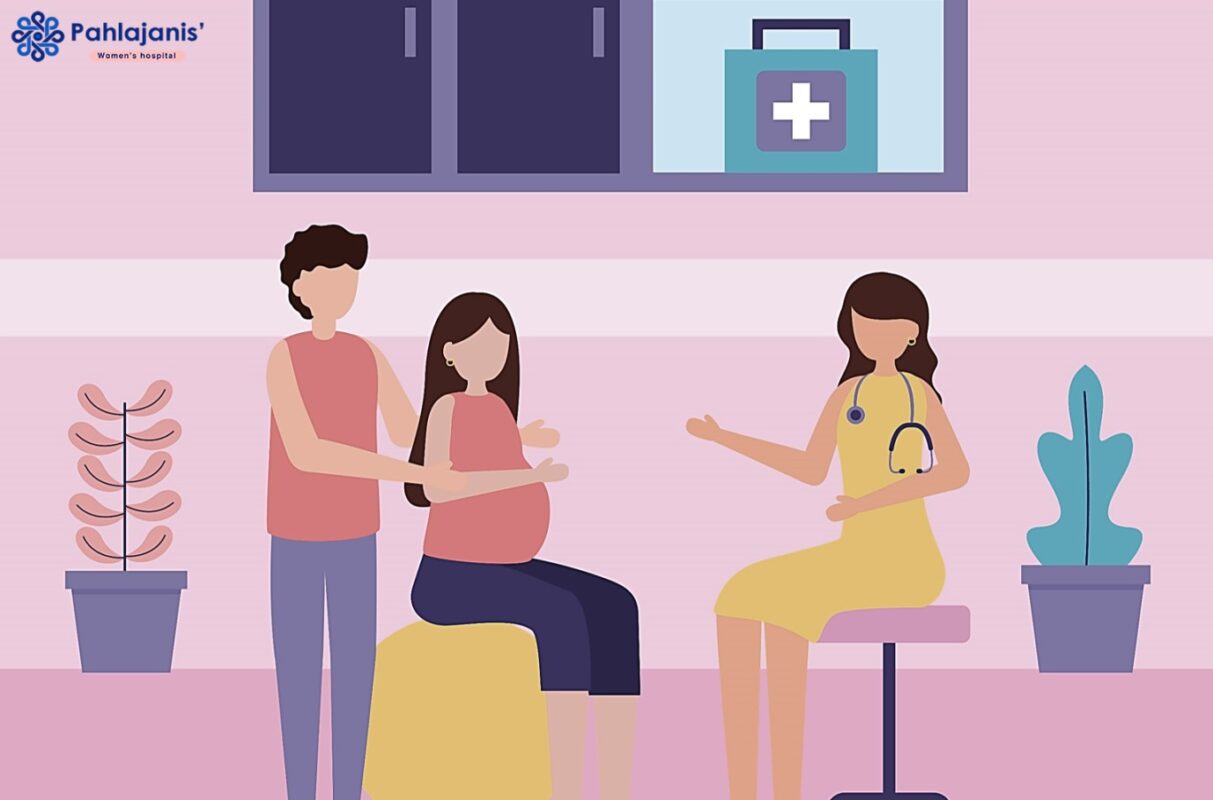Menopause is a natural phase in every woman’s life, typically occurring around the age of 50. It marks the end of a woman’s menstrual cycles and brings with it a range of physical and emotional changes. Some women may experience these changes gradually, while for others, the symptoms can be sudden and overwhelming. In this blog, we’ll explore the common menopause symptoms, ways to manage them, and how women can take care of their health during this time.
What Is Menopause?
Menopause is defined as the point when a woman has not had her period for 12 months. It usually happens between the ages of 45 and 55, with the average age being 51. Before end of menstruation, women go through a phase called perimenopause, which is when the body starts to prepare for the end of menstruation. During this time, hormone levels can fluctuate, causing irregular periods and other symptoms.
Common Menopause Symptoms
Every woman’s experience with menopause is different, but there are some common menopause symptoms that many women experience:
- Hot Flashes: A sudden feeling of heat, usually in the upper body, that can last from a few seconds to several minutes.
- Night Sweats: Hot flashes that occur during sleep, often causing sleep disruptions.
- Mood Swings: Fluctuating hormones can lead to irritability, anxiety, or even depression.
- Vaginal Dryness: Lower estrogen levels can lead to dryness, discomfort, or itching in the vaginal area.
- Sleep Problems: Difficulty falling asleep or staying asleep, often due to night sweats or general restlessness.
- Weight Gain: Many women notice a slower metabolism during menopause, which can lead to weight gain.
Emotional Changes During Menopause
The emotional effects of menopause can be just as challenging as the physical ones. Many women report feelings of sadness, irritability, or even depression during this phase of life. These emotional changes during menopause can be due to the hormonal fluctuations that happen in the body. The sudden drop in estrogen can affect the chemicals in the brain that control mood, leading to feelings of anxiety or sadness.
For some women, end of menstruation can also bring feelings of loss, as they may associate it with aging or the end of their fertility. However, it’s important to remember that menopause is a natural part of life, and these emotional changes are temporary.
Menopause Treatment Options
While menopause is a natural process, some women may need help in managing their symptoms. There are various menopause treatments available to make this phase of life more comfortable:
- Hormone Therapy for Menopause: Hormone replacement therapy (HRT) is one of the most common treatments. It involves taking estrogen (and sometimes progesterone) to help balance hormone levels and reduce symptoms like hot flashes, night sweats, and vaginal dryness. However, HRT is not suitable for everyone, so it’s important to consult with a doctor before starting this treatment.
- Non-Hormonal Treatments: For women who cannot or prefer not to take hormones, there are other options. Certain medications, such as antidepressants, can help manage mood swings or hot flashes. Some women also find relief with lifestyle changes, such as exercising regularly and eating a balanced diet.
- Natural Remedies: Many women look to natural treatments to manage menopause symptoms. Herbal supplements like black cohosh, evening primrose oil, and soy-based products are popular choices. However, it’s important to talk to a healthcare provider before starting any supplements, as they can interact with medications.
Managing Menopause Through Lifestyle Changes
In addition to medical treatments, there are many ways to manage menopause through healthy lifestyle habits. These changes can help alleviate symptoms and improve overall well-being:
- Exercise Regularly: Physical activity can help reduce hot flashes, improve sleep, and boost mood. Weight-bearing exercises like walking or strength training are especially helpful in maintaining bone health.
- Eat a Healthy Diet: A balanced diet rich in fruits, vegetables, and whole grains can help manage weight gain and provide the nutrients needed to keep bones strong. Foods high in calcium and vitamin D are particularly important during menopause to help prevent osteoporosis.
- Stay Hydrated: Drinking plenty of water can help combat dryness and bloating.
- Practice Relaxation Techniques: Mindfulness, yoga, or deep breathing exercises can help manage stress and improve mood during this time of emotional and physical change.
- Get Enough Sleep: Prioritizing sleep is essential during menopause. Creating a calming bedtime routine and keeping the bedroom cool can help reduce night sweats and promote better sleep.
Women’s Health After 50
Midlife change is often seen as a turning point in a woman’s life, and it’s a great time to refocus on your overall health. After end of menstruation, women are at a higher risk for certain conditions, such as heart disease and osteoporosis. Taking care of your women’s health after 50 is crucial to ensuring a long and healthy life. Here are a few tips:
- Schedule Regular Checkups: Continue seeing your healthcare provider for regular screenings and tests, such as mammograms, bone density tests, and cholesterol checks.
- Take Care of Your Bones: After end of menstruation, women lose bone density more quickly, which can lead to osteoporosis. Ensure you’re getting enough calcium and vitamin D, and consider talking to your doctor about supplements if necessary.
- Focus on Heart Health: As estrogen levels drop, the risk of heart disease increases. Maintain a healthy weight, eat a heart-healthy diet, and exercise regularly to keep your heart strong.
- Stay Mentally Engaged: Keep your brain active through reading, puzzles, or learning new skills. This can help ward off cognitive decline as you age.
Embracing the Change
While menopause may bring physical and emotional challenges, it is also a time to embrace new beginnings. Many women find a renewed sense of freedom and self-assurance after end of menstruation. With the right information, support, and healthy lifestyle choices, you can navigate this phase with confidence and take control of your health.
Pahlajanis’ Women’s Hospital and IVF Center: Supporting Women Through Every Life Stage
At Pahlajanis’ Women’s Hospital and IVF Center, we understand the unique health challenges women face throughout their lives, including midlife change. Our dedicated team of gynecologists and specialists provides personalized care for women navigating end of menstruation, offering treatments and lifestyle guidance to manage menopause symptoms. Whether through hormone therapy, non-hormonal treatments, or support for emotional well-being, we are committed to helping women maintain their health and vitality during this important transition.





